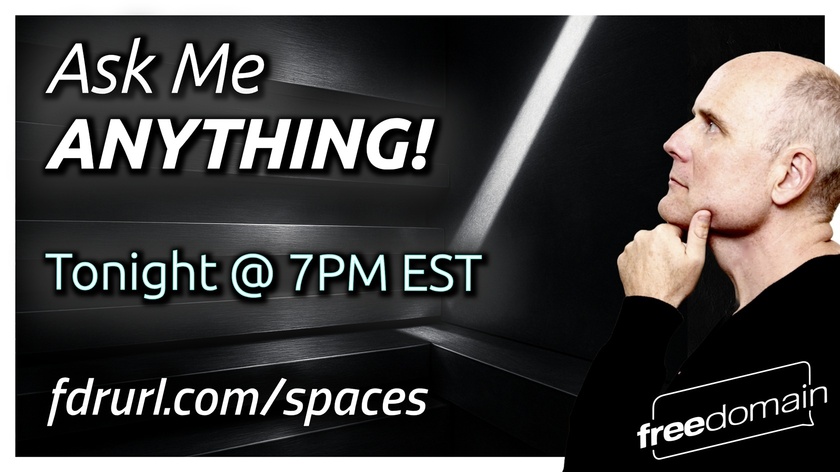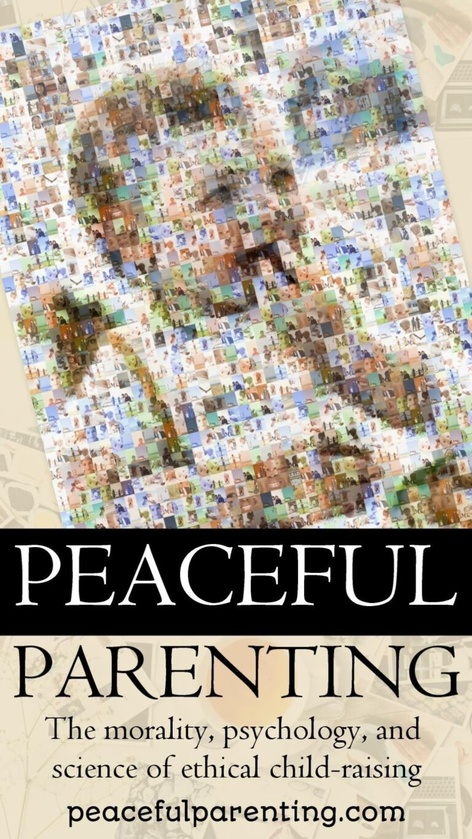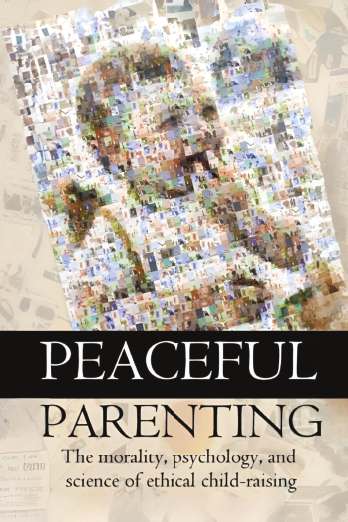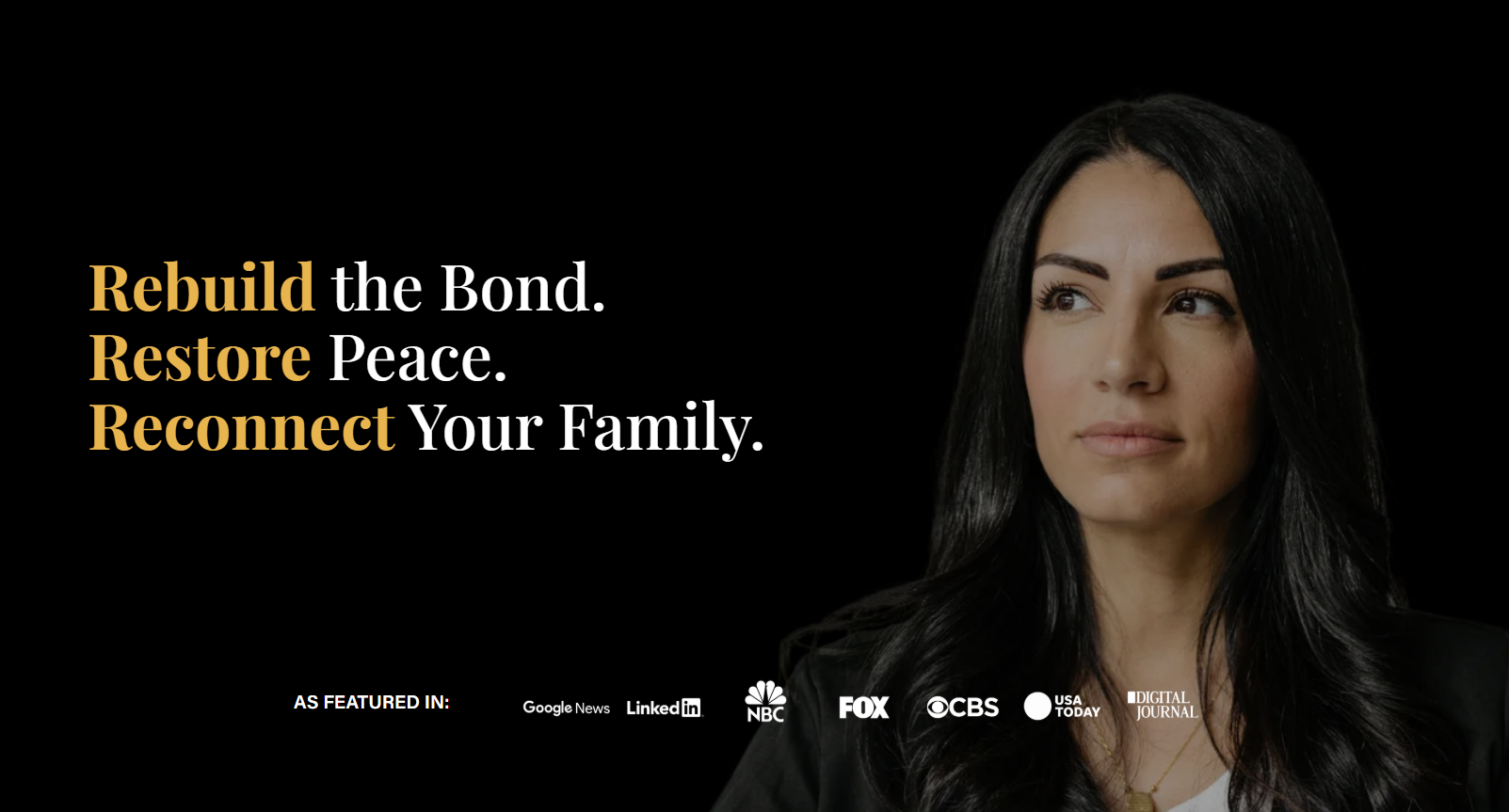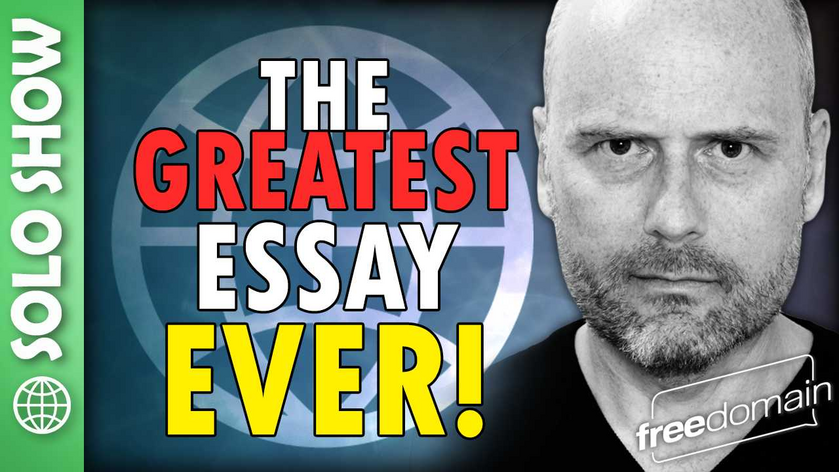Morality and the Elements
Now we turn to the heart of philosophy, which is morality.
The purpose of medicine is physical health; the purpose of nutrition is digestive health. All the research, theory, scientific examination, testing and writing in these fields are designed with one, and only one, objective in mind: to get you to change your behaviour.
There is little point in buying a diet book if you do not change your diet. The cliché of the exercise machine ordered with high enthusiasm at 2:00 a.m. that ends up gathering dust under your guest bed fits this pattern as well. There is no point in learning how to exercise if you never bother exercising. There is no point going to the doctor and getting a prescription, if you never end up taking the medicine.
The purpose of all knowledge is to change behaviour. We study piano in order to improve our piano playing, we learn how to cook so we can cook better, we diet and exercise in order to become healthier. We study another language to better speak that language. We learn how to use a computer so that we can achieve our goals more efficiently. Why do we check the weather? In order to change our behaviour – bring an umbrella, apply sunscreen, whatever.
There was an old video recording and playback technology called the VCR – you can still buy the machines online. Imagine getting ahold of a very early VCR – and then learning how it had been programmed. It might be possible to either get the source code – sitting on some dusty 5¼-inch floppy disk somewhere – or reverse-engineer the VCR code. Then imagine spending months learning that code, studying the hardware specifications and capacities of the machine, and finding some way to improve its speed, efficiency or responsiveness. Then perhaps you could find some way to inject that new code into an existing ancient VCR and watch it perform better. I can’t fathom why anyone would ever pursue that goal, because it would be a dismal and useless waste of time, for many obvious reasons.
It might be possible to justify such a hobby on the grounds that it sharpens your mind, gives you skills that might benefit you in the future, or something along those lines. But I think it would be reasonable to say that anyone who spent hundreds of hours on this pursuit might be exhibiting signs of some sort of obsessive-compulsive disorder or other kind of mental imbalance.
If you were told today that you had three months to live, would you immediately start studying a difficult foreign language?
A subculture of programmers has devoted themselves to the task of getting the old video game Doom to run on a variety of platforms, including printers and cell phones and other disparate hardware.
In this case, I can only assume they are pursuing the respect of others in their subculture, along with the immediate dopamine hit of getting code to run on something that wasn’t designed to run it. There is a purpose in what they do, and the test is whether they post their successes publicly. If you found some man with a variety of ancient hardware in his garage, who had spent the last five years getting an old video game to run on everything from a scientific calculator to a monochrome printer interface, but had never told anyone of his strenuous endeavours, and never used his acquired skills anywhere else, wouldn’t that be a sign that he was pretty nuts?
Intense effort without payoff, without benefit, is a sign of mental illness – like a man endlessly organizing useless items, or a woman obsessively washing her hands, or a child spending eight hours building and breaking one particular toy – these are all signs that all is not well in the upstairs chambers.
I bring all this up because I’m sure you are at least vaguely aware of the enormous efforts that have been poured into philosophy just over the past century or so, and how little productive and valuable meaning has come out of it – at least for the average individual.
Quick – tell me what moral principles have come out of existentialism, postmodernism, pragmatism, collectivism, relativism, or even socialism or Marxism or fascism. Have any of these ideologies or philosophies helped you make better moral decisions in your daily life? I am not talking about political activism, but the personal moral challenges we all face.
Generally, vague positive effects are claimed. Philosophy “enriches” and “deepens understanding” and “brings wisdom” – which are all unquantifiable positives that generally accrue only to the individual.
Philosophy is not just about making you feel better, but about making the world better as well.
When people are generally competent in the science of nutrition, the need for nutritionists diminishes.
When people become generally competent in philosophy, the need for philosophers will diminish.
Gaining significant expertise in nutrition comes with a reasonable expectation that you will instruct the ignorant.
Becoming competent in philosophy also comes with a reasonable expectation that you will instruct the ignorant.
Even philosophies that claim to pursue the moral good rarely result in positive changes in personal behaviour.
There are philosophies that advocate for government control of healthcare. Do they directly help you make better decisions to become a healthier person? Quite the opposite – if healthcare is “free,” people are more likely to neglect their health.
If you think of the philosophy of collectivism – that the group should rule over the individual – it is not designed to help you make better decisions in your own life, but rather to surrender your own decision-making capacity to the mob.
If you think of relativism – the argument that claims as true the position that there is no such thing as truth – how does that help you make moral decisions in your daily life?
Being a Marxist may encourage you to spend your time attempting to establish a dictatorship to transfer control of the means of production to the state, but how does that goal help you make better moral decisions today, tomorrow or ever?
The philosophy of pragmatism may encourage you to judge an idea by its effects, rather than by its principles, but it does not help you make any better moral decisions today – it generally encourages you to act randomly and judge the results over time. I can’t imagine that a diet book called Eat Randomly: See If You Get Thin! would ever sell well. A book on ethics called Kill Today, See How You Feel Tomorrow! would not be particularly ethical.
The general slogan that praises “the greatest good for the greatest number” does not help you in your own particular life. It is designed, of course, to get you to vote for more and more government power, since collective benefits can in general only be secured and enforced by the coercive might of a centralized state.
Such philosophies are either designed to make ethics murky, confusing and messy, or they are designed to get you to vote for bigger and bigger government – they are not designed to help you make better moral decisions in your own life today.
Compare this to Christianity – the Ten Commandments are not collectivist in nature, but are aimed directly at the individual and his or her own moral choices. The question “What would Jesus do?” is specifically designed to evoke a personal reaction in a moment of moral crisis, to help the individual pattern himself after the most moral being in the universe. The Bible consistently exhorts people to pursue virtue individually in their daily lives, using personal decisions – it doesn’t just tell people to vote for a politician who is going to enforce some kind of collective and coercive “good.”
You do good in order to get to heaven. Your conscience is your own and cannot be outsourced to anyone else – any other mob, group, collective, politician or government. In fact, Christianity directly warns people of the danger of the mob and of the necessity for individual salvation. Your conscience is responsible to virtue, and you can no more outsource your moral responsibility than you can ask someone else to digest your food for you.
Once you have saved yourself, then you can save others. Put the airplane oxygen mask on your own face first.
The destruction of individual conscience that grew out of Darwinism, materialism, socialism and atheism was one of the greatest catastrophes ever to hit Western civilization – in fact, it has been the persistent undoing of Western civilization ever since.
The Storm and the Self: An Analogy
Imagine a dark village battered by a terrible storm – only the walls of the village church hold strong. All who venture outside risk sudden death, but all who take shelter inside the church are safe. The villagers all huddle inside, singing, praying and sharing food.
Into the village, through the storm, rides a group of atheists. Dismounting, they pull out sledgehammers, cry out that there is no God, swarm up the wet walls and start pounding on the roof of the church, tearing it away. The storm, the hail, the wind, the debris – all begin flying into the church and smashing into the people. As the steeple collapses, lightning strikes the cross, jumps through the water and electrocutes some of the panicked congregation.
In the hellish storm, with the atheists tearing open the roof, it becomes more dangerous inside the church than outside, in the devilish elements. The villagers, crying out in terror, stream out of the dying church and into the rain-lashed landscape, dodging flying tree branches and rolling rocks. The atheists, after having completed their destruction of the church, gather the villagers before them.
“You can thank us now, for we have saved you from your superstition!” cries the leader of the atheists.
“The storm is raging, and getting worse. Where on earth do we go now? Where do we take shelter?” demand the villagers, covering their children with their own bodies, chilled to the bone, cut and broken by flying debris, shaking and terrified and enraged.
The atheists simply smile and charge off into the storm, looking for another church to tear apart. And what happens to the villagers?
I think we all know.
We are seeing it play out every single day across the Western world. The storm gets worse, the violence increases, and the church – which sheltered not just the villagers, but their entire civilization – lies in ruin.
Let us say that the church as an institution is wrong. There are certainly good philosophical arguments to make in that direction – but so what?
If you are a decent, moral human being, you do not tear down the only structure that shelters the people from storms, without providing them a better place to take refuge.
And you sure as hell do not tear down their shelter during a storm.
If you despise the existing shelter, build a better shelter, and people will arrive of their own accord.
The most fundamental question I have asked of myself recently, and of my own history with atheism, is this: Do atheists love the truth, or do they merely hate the church?
The state is the great competitor to religion. Christianity aims to prevent crime – the state aims to “cure” it. Think of the difference between a nutritionist and a surgeon. Often, the more influence the nutritionist has, the less work there is for the surgeon.
You can have a big God and a small state, or you can have a small God and a big state – the pendulum of society seems to irrevocably swing back and forth between the two in this tragic manner.
Those who wish to grow the power of the state know the church stands directly in their path. Transferring the allegiance of the citizenry from the worship of God to a worship of the state requires that God be discredited; the state inevitably takes its place. For well over a century, atheists have savagely dismantled the church, religious faith, the conscience, the conception of sin, and a fear of the afterlife.
The Marxists say that religion is the opiate of the masses – modernity reveals that Marxism is the opiate of the anti-religious.
The church was the traditional moral home of Western civilization, amid the perpetual storm of intertribal and international conflicts that is the world. Atheists tore down the church because they claimed to love truth and found religion false.
Did the atheists – and do the atheists – love truth?
By far the greatest threat to human life – at least in the twentieth century – came from the state, not from religion. In that most dismal hundred-year span, governments murdered two hundred and fifty million of their own citizens. This horrifying figure does not even include wars.
This is a basic truth of history – states have murdered hundreds of millions of people in a single hundred-year span.
Society needs to be organized, people need to follow rules – the traditional organization in the West that provided these things was based on Christianity.
When Christianity – and the rules it engendered – was torn down by the atheists, what did they erect to protect the people?
Nothing. Nothing at all.
They tore down the church and sold the people to the state.
I am increasingly of the opinion that atheists were useful idiots used to destroy the church that stood in the path of the power mongers, who thirsted to expand the brutal strength of the state.
I am telling you all of this before I introduce you to a rational proof of secular ethics, because I was – and remain – deeply shocked by the hostility and indifference shown by atheists to such a proof.
The destruction of Christian ethics created a power vacuum in society that was filled by increasing state power. Atheists hated being influenced by the voluntary participation of Christianity – but seem to have no problem being controlled by the coercive power of the state.
Atheists rail against the automatic guilt of original sin, but seem to have far fewer objections to the automatic guilt of “racism,” “sexism,” “patriarchy,” “misogyny” – and all the other slanderous attack-labels of the encroaching left.
What were atheists as a whole selling to the general public, or at least the intellectual public?
Were they selling a new moral goal that would supersede and transcend religious imperatives? Were they combining a hatred of irrationality and coercion that would culminate in opposition to the increasing size and power of the state?
Of course not.
Becoming an atheist released people from moral obligations. It removed the all-seeing eye of God, the strictness of moral integrity, and the requirement to sacrifice the immediate self to a higher purpose.
What moral rules – what strictness, what requirements for self-discipline, self-subjugation and integrity – did atheism provide?
Where atheism overlapped with Marxism – or at least socialism – there were larger goals as a whole: increasing the size and power of the state and its capacity to control resources and redistribute income – but that strikes me as a particularly satanic goal.
Did Marxists deny religion out of a deep opposition to irrational beliefs? Of course not – reason and evidence have denied the truth and virtue of Marxism, but many Marxists have just abandoned reason and evidence rather than give up their irrational beliefs. (Hence postmodernism.)
Did Marxists oppose capitalism because they care about the poor? Of course not – free markets have freed and enriched the poor; Marxism impoverished and enslaved them.
Did Marxists oppose existing governments because those governments were oppressive and tyrannical? Of course not – Marxist governments are far more oppressive and tyrannical.
Marxism is the mere manifestation of a post-Darwinian lust for power and resources. Christianity stands between the Marxists and the tyranny they thirst for; therefore, Christianity must go.
For Christians, poverty in this life may be a precursor to an eternity in heaven after death. As the Bible saying goes, it is easier for a camel to go through the eye of a needle than for a rich man to enter the kingdom of heaven. Poverty is not a desperate problem to be solved by any means necessary – many devout Christians embrace poverty.
For atheists, since there is no afterlife, the problem of poverty becomes far greater. A poor man does not get his reward after death; he just suffers a miserable life, then dies. More secular philosophies such as socialism and communism tend to focus on material inequality far more than Christianity – as Jesus says, the poor will always be with us.
Since it accepts material inequality, Christianity is far freer to focus on fundamental principles – equality of opportunity, rather than equality of outcome; a commandment that says thou shalt not steal, rather than a law demanding forced income redistribution.
Christianity also focuses on achieving virtue by rejecting materialism and power over others. The devil tempts Jesus by offering him the whole world – Jesus rejects him. As the Bible says, “For what shall it profit a man, if he shall gain the whole world, and lose his own soul?”
For atheists, a man has no soul to lose, so it is far more tempting to demand that the state serve the material needs of the population, rather than reinforce the population’s spiritual and moral virtues. A material focus leads to a fundamental problem, however. If the state forcibly transfers income, it cannot at the same time maintain property rights – the two positions are antithetical. Secular governments increasingly shift from “thou shalt not” to “thou shalt” – a far less free position.
Human beings are strongly primed by nature to desire violent power over others. Even bonobo monkeys, when they climb the hierarchy of tribal power, receive increased dopamine hits deep in their brains, which incentivize them to become even better at subjugating other monkeys.
Offering political power to human beings is like offering cocaine to a desperate addict – the addict has a plan, sure, but we would not describe it as a very noble or elevated plan.
Political power requires the initiation of force against citizens.
Plotting to gain, keep and increase political power is deeply immoral. Whether consciously or not, atheists have helped open the gates of hell to endless escalations of state power. They have been foot soldiers in the great stampede of evildoers to gain control of and expand political power – the power of coercion.
This is, of course, a hypothesis – but it is a testable hypothesis.
Do atheists tend toward leftism? They certainly do. In one study, atheists are almost seven times more likely to support the Democratic Party rather than the Republican Party in the United States. From Pew Research:
“About two-thirds of atheists (69%) identify as Democrats (or lean in that direction), and a majority (56%) call themselves political liberals (compared with just one-in-ten who say they are conservatives).”3
Do atheists recognize that the initiation of force is far more immoral than any possible personal irrationality? They certainly do not, since they consistently attack Christianity, and consistently defend the state. For adults, Christianity is voluntary, and there are no penalties for leaving the faith – state commandments and laws are not voluntary, and can result in prison sentences for disobedience.
If atheists were generally concerned with the philosophical and moral improvement of the human race, they would have restrained their base attacks on Christianity until they, as atheists, were able to provide a rational and objective moral framework to help society become more reasonable and good, rather than merely tear down the church and expose a desperate and frightened population to all the raw and destructive elements pouring down from the black skies of history.
A moral atheistic philosophy would have said this:
“Well, a byproduct of disproving God will be the undoing of Christian ethics – but society needs ethics, so we better hold off unraveling the central moral fabric of our societies until we have something better to take its place. Even if Christianity is an irrational painkiller, the population is certainly in pain, and withdrawing the painkiller without providing an alternative is mere sadism. So, let us put our heads together, start from scratch, and build a system of ethics from the ground up, making sure every step is complete and cohesive, and then work our mighty intellectual and verbal muscles to trumpet a rational system of secular ethics from the rooftops, so that the people do not dissolve into confusion, depression, materialism and hedonism.”
This they did not do. Quite the opposite, in fact.
They said: “Christianity is irrational and ridiculous and destructive, so away with these false superstitions and contradictory edicts, away with this hierarchy, punishment and guilt-tripping and all other sorts of nonsense. Let us merely oppose the irrational, rather than build the truly rational.”
3 M. Lipka. “10 facts about atheists.” Pew Research Center. June 1, 2016. http://www.pewresearch.org/fact-tank/2016/06/01/10-facts-about-atheists/
If atheists were truly moral – even if they had overlooked the need for generally accepted social ethics – they would surely have cheered the introduction of a rational proof of secular ethics.
Doing so would provide a moral framework outside of religion and above the mere coercive powers of state law. This would provide the people with shelter from the storms of the world and an objective framework by which to organize their lives, their decisions, and the larger decisions of society as a whole.
However, in the decade or so that I have introduced my rational proof of secular ethics, atheists have been supremely indifferent – and occasionally hostile – to the argument.
Think of a village in a near-infinite desert, with a single murky spring for water. Atheists find the brackish spring objectionable – “The water is not pure!” – and destroy it. The people start dying of thirst. The atheists say that they want people to be good and healthy and happy, but they do nothing to find an alternate water source. A man starts delivering water from an unknown location, but rather than find its source, the atheists merely tell everyone that the man is crazy, and that his water is poisoned, and they should shun him.
These atheists are condemning the villagers to a slow and ugly death. What is their purpose?
Is it not to cause and watch human suffering?
Is it not also true that the atheists shall die of thirst in turn?
It is fine and good to want to improve a water supply, but to destroy an existing water supply for its imperfections without providing new water is neither fine nor good. Furthermore, when fresh, clean water becomes available, to scare the villagers into avoiding it is a grim manifestation of selfish sadism.
The power vacuum created by the destruction of Christian ethics in society will be filled either by reason or by violence. By failing to pursue a rational substitution for Christian ethics – and by damning and attacking those who have – atheists have merely served the state, and they will, I believe, be condemned by history.
The old alliance between communism and atheism has been regularly mocked by atheists, without fruitful examination. Why has totalitarianism constantly sought to erase religion? Saying Hitler was an atheist and Stalin was an atheist – but that their atheism was about as relevant to their ideologies as their moustaches – does not help or aid a deeper examination of any potential causality.

